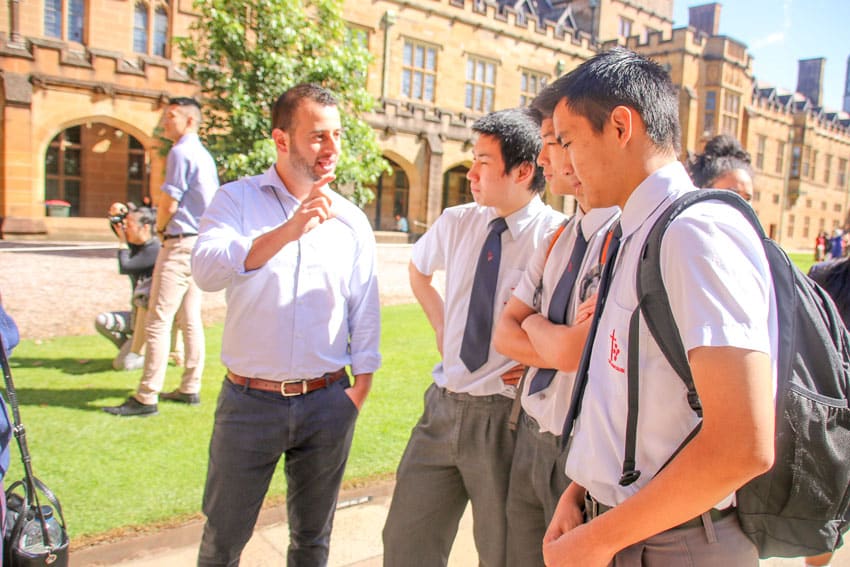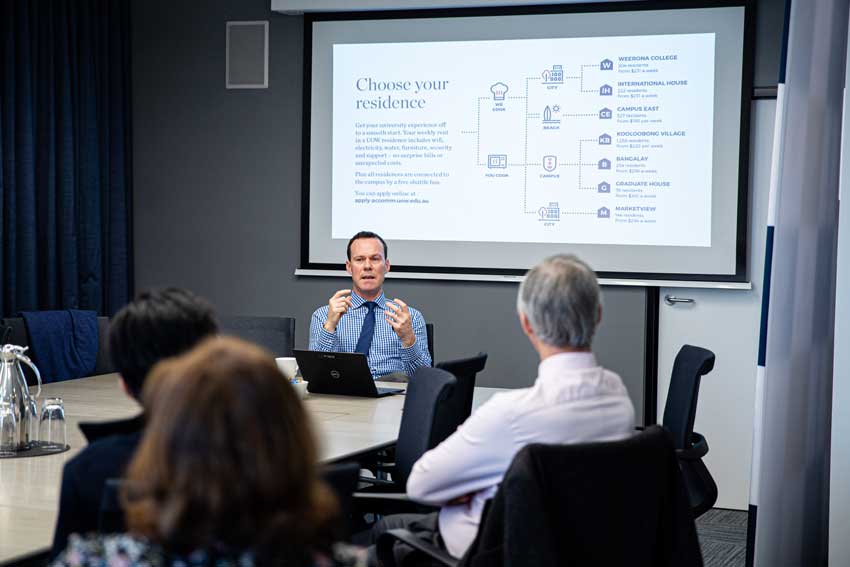
Around this time of year, I see many buses pull into university carparks filled with Year 12 students coming to check out the courses on offer. Clearly, many final year high school students are thinking about the next stage.
While their investigations are important, there is another essential activity they need to do before they decide. I call it “the university conversation” and it’s one that needs to happen between parents and children before universities or courses are even thought about.
For many students, first year university is increasingly looking like Year 13 of high school. That’s because parents are often over-involved in their child’s university experience.
Indeed, the term helicopter parenting came about when university staff increasingly saw parents hovering around their adult children on campus, preventing them from growing up.
Their actions include parents calling lecturers to get their child extensions or enquiring about their adult child’s results.
To ensure that your child uses the opportunity of university to gain the best chance for future success, I’d suggest a frank conversation with them about the following ideas.

Who is paying for university?
Are parents paying for the course? If so, do they get some say in what’s chosen? Even if the child is taking on the responsibility of HECS fees, who is paying for day-to-day living? What exactly will and won’t parents pay for? Will the student need to get a part time job?
If they will live at home – what are their responsibilities? As they’re now an adult, think seriously about them having an equal adult share of household responsibilities, regardless whether they have exams, an assignment due, or a busy social life. Also, they sort out all of the responsibilities for their degree – never their parents.
What is the employment rate of the course they are thinking about? Often, the most interesting courses are the ones that have the lowest rates of employment. It’s fine if they follow their passion but have a candid conversation about some possible outcomes – such as needing to do another degree or only being able to get a job that is very different to the career they planned.
Increasingly, I see students in their final school year suddenly realise they’re unlikely to end up working in the area they have studied.
This gives them a high HECS bill, no real job prospects and, in my experience, an increased risk of experiencing depression. Don’t underestimate the possibility or impact of this happening.
If they can’t find a job after studying the course, will parents fund another course? If they need to study something else or want to go on to Masters or PhD to be able to get a job in the area, are parents going to pay for the next course or day-to-day living expenses during the second degree?
What are the expectations if they drop out of their first year or take a gap year? Does the family have an ‘earn or learn’ policy? If a gap year is being taken or they take a break from university, how many hours a week will they have to work? Will they be expected to pay board?
When do they plan to move out of home? A recent study suggested that 28 seemed to be the age where living with your folks went from acceptable to unacceptable. Have a conversation with your child about when they plan to move out. Remember it is not just your child’s decision, but yours too.
I do not suggest at all there are right or wrong answers to any of these questions – you have to choose what is right for your family. But don’t go into the next stage ill-equipped. As with everything – it is all in the preparation.
Takeaway for parents
Before your child chooses a career have them chat to people in the profession.
• What do you enjoy about the job and what don’t you enjoy?
• What sorts of skills are needed?
• Is there anything that is misunderstood about the real nature of the job – say, the fantasy compared to the reality?
• Would you choose the career again if you had your time over? What would you do differently?
• What is employment like in the area? Is there anything that might impact on this in the future that you know about?
• What course or university would you recommend?
• And, of course, don’t forget to thank them for their time.
This article originally appeared in the Sunday Mail on 4.8.19.

